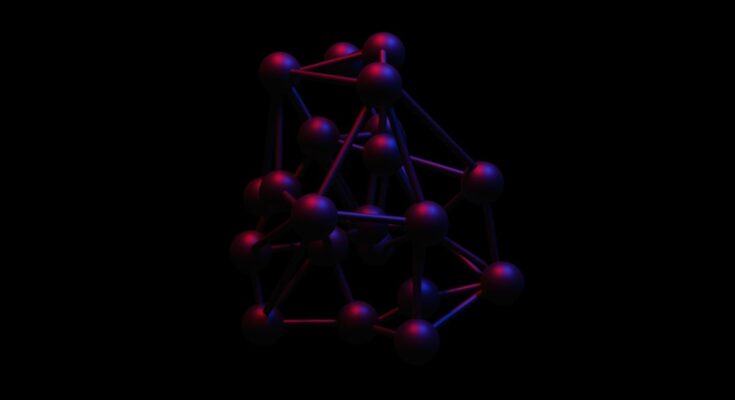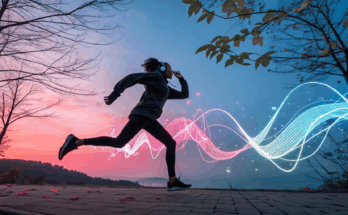As I sit in my makeshift studio, surrounded by an array of instruments and a computer that has seen better days, I often find myself reflecting on the roots of the music I love. Afrobeat, a genre that has captivated my imagination and inspired countless tracks, has a rich history that deserves exploration. Born in the 1960s from the creative genius of Nigerian musician Fela Kuti, Afrobeat is a fusion of traditional African rhythms, jazz, highlife, and funk.
It’s a genre that not only grooves but also speaks volumes about social issues, politics, and the human experience. I remember the first time I stumbled upon Fela Kuti’s music. I was at a friend’s house, and he casually tossed on “Zombie.” The infectious rhythm and powerful lyrics hit me like a ton of bricks.
I was hooked. It was as if I had discovered a secret world where music was not just entertainment but a form of resistance and expression. The origins of Afrobeat are steeped in the struggles and triumphs of the African people, and as I delve deeper into its history, I find myself inspired to incorporate those elements into my own productions.
Key Takeaways
- Afrobeat rhythms originated in Nigeria in the late 1960s, blending traditional African music with jazz, highlife, and funk influences.
- Afrobeat music is characterized by complex polyrhythms, repetitive grooves, and socially conscious lyrics, often featuring extended instrumental solos and call-and-response vocals.
- AI technology is revolutionizing music production by offering tools for composition, arrangement, and sound design, as well as automating tasks like mixing and mastering.
- AI analyzes Afrobeat rhythms by processing large datasets of music to identify patterns and structures, then replicates these rhythms using virtual instruments and digital audio manipulation.
- Collaborating with AI in music creation allows artists to access new creative possibilities, experiment with unconventional sounds, and streamline the production process, but also raises questions about artistic authenticity and human creativity.
Understanding the Unique Characteristics of Afrobeat Music
The Polyhythmic Drumming Patterns
The polyrhythmic drumming patterns are a hallmark of the genre, often featuring multiple layers that create a rich tapestry of sound.
The Thrill of Creation
As an amateur producer, I’ve spent countless hours trying to replicate those rhythms, often failing spectacularly but learning something new each time. One of my favorite anecdotes involves a late-night jam session with some fellow music enthusiasts. We decided to tackle an Afrobeat-inspired track, and after several hours of trial and error, we finally found our groove.
Capturing the Infectious Energy
It was a moment of pure joy when we realized we had captured that infectious energy.
It’s these moments that remind me why I love music production—it’s about collaboration, experimentation, and the sheer thrill of creation.
The Role of AI in Music Production
As I navigate my journey as an aspiring music producer, I can’t help but marvel at the advancements in technology, particularly artificial intelligence (AI). AI has become an integral part of music production, offering tools that can analyze, create, and even enhance musical compositions. While some purists may scoff at the idea of machines playing a role in art, I see it as an opportunity to push boundaries and explore new creative avenues.
I once had a conversation with a seasoned producer who was skeptical about AI’s role in music.
While I agree with him to an extent, I also believe that AI can serve as a collaborator rather than a replacement.
Imagine having an AI assistant that can suggest chord progressions or help you fine-tune your mix! It’s like having a virtual bandmate who never sleeps and is always ready to lend a hand—or a byte.
How AI Analyzes and Replicates Afrobeat Rhythms
The beauty of AI lies in its ability to analyze vast amounts of data quickly and efficiently. When it comes to Afrobeat rhythms, AI can dissect the intricate patterns that define the genre. By studying thousands of tracks, AI algorithms can identify common elements such as tempo, instrumentation, and rhythmic structures.
This analysis allows aspiring producers like me to understand what makes Afrobeat so captivating. I remember experimenting with an AI-driven software that claimed to generate Afrobeat rhythms based on existing tracks. Skeptical yet curious, I fed it some classic Fela Kuti songs and waited for the magic to happen.
To my surprise, it produced a rhythm that was eerily reminiscent of the originals but with a modern twist. It was both exhilarating and slightly unnerving—like having a musical doppelgänger! This experience opened my eyes to the potential of AI in preserving traditional sounds while allowing for innovation.
Collaborating with AI in Music Creation
The idea of collaborating with AI in music creation is both thrilling and daunting. As I dive deeper into this realm, I find myself embracing the concept of AI as a creative partner rather than just a tool. With AI algorithms capable of generating melodies, harmonies, and even lyrics, the possibilities seem endless.
It’s like having an infinite well of inspiration at my fingertips. During one particularly ambitious project, I decided to co-create a track with an AI program designed for music composition. I fed it some Afrobeat samples and watched as it generated melodies that complemented my initial ideas.
The result was a fusion of my human touch and the algorithm’s unique perspective—a delightful blend that felt fresh yet familiar. It was as if I had invited a quirky friend into my studio who had an uncanny knack for musical surprises.
Challenges and Opportunities in AI-Driven Music Production
While the integration of AI into music production presents exciting opportunities, it also comes with its fair share of challenges. One major concern is the potential loss of authenticity in music creation. As an ambitious producer striving to carve out my niche, I often wonder if relying too heavily on AI could dilute my artistic voice.
After all, music is deeply personal; it reflects our experiences, emotions, and stories. However, I’ve come to realize that challenges often lead to growth. Embracing AI doesn’t mean sacrificing my individuality; rather, it allows me to explore new dimensions of creativity.
The key lies in finding a balance between human intuition and technological innovation. In conversations with fellow producers, we often joke about how we’re all just trying to keep our “human” card while navigating this brave new world of AI-driven music production.
The Future of Afrobeat Music Production with AI
As I gaze into the future of Afrobeat music production with AI at the helm, I can’t help but feel optimistic. The potential for innovation is staggering—imagine AI algorithms that can not only analyze existing tracks but also predict emerging trends within the genre! This could lead to a renaissance of Afrobeat music that honors its roots while embracing contemporary influences.
I recently attended a panel discussion featuring industry experts who shared their insights on the future of music production. One speaker passionately argued that AI could democratize music creation by making high-quality production accessible to aspiring artists worldwide. This resonated with me deeply; as someone who started with limited resources, I understand the barriers many face in pursuing their musical dreams.
If AI can level the playing field, then we’re on the brink of something truly revolutionary.
Exploring New Frontiers in Music Creation with AI
As I continue my journey as an amateur music producer, I find myself excited about exploring new frontiers in music creation with AI by my side. The possibilities are endless—collaborating with virtual musicians from around the globe, experimenting with hybrid genres that blend Afrobeat with electronic elements, or even creating immersive soundscapes that transport listeners to different worlds. In conversations with fellow musicians and producers, we often share our dreams for the future—what if we could create interactive albums where listeners could influence the direction of the music?
Or what if we could use AI to compose soundtracks for virtual reality experiences? These ideas may sound far-fetched now, but as technology continues to evolve, who knows what lies ahead? In conclusion, my journey as an ambitious male amateur music producer has been filled with exploration and discovery—both in understanding Afrobeat rhythms and embracing the role of AI in music production.
As I reflect on my experiences and engage with fellow creatives, I am reminded that music is not just about notes and beats; it’s about connection, expression, and pushing boundaries. With each track I create—whether it’s infused with traditional Afrobeat elements or shaped by AI—I am reminded that the heart of music lies in its ability to inspire and unite us all.
If you’re interested in learning more about how indie artists can achieve playlist placement success, check out the article “Unlocking Playlist Placement Success: Proven Strategies for Indie Artists”. This article provides valuable insights and tips for independent musicians looking to increase their visibility and reach a wider audience.
Check Out Our Music Producer Class!
FAQs
What is Afrobeat music?
Afrobeat is a music genre that originated in West Africa, particularly Nigeria, in the late 1960s. It is a fusion of traditional African rhythms, jazz, highlife, funk, and chanted vocals.
What are the key characteristics of Afrobeat rhythms?
Afrobeat rhythms are characterized by complex interlocking percussion patterns, repetitive grooves, and a strong emphasis on the bass and drums. The music often features call-and-response vocals and horn sections.
How is AI used in exploring Afrobeat rhythms for music production?
AI is used in exploring Afrobeat rhythms for music production by analyzing large datasets of Afrobeat music to identify common rhythmic patterns, chord progressions, and melodic motifs. This analysis can then be used to generate new musical ideas or assist in the composition process.
What are the benefits of using AI in music production for exploring Afrobeat rhythms?
Using AI in music production for exploring Afrobeat rhythms can help musicians and producers discover new rhythmic ideas, overcome creative blocks, and expand their musical vocabulary. It can also streamline the composition process and provide inspiration for creating authentic Afrobeat music.
Are there any limitations to using AI in exploring Afrobeat rhythms for music production?
While AI can be a valuable tool for exploring Afrobeat rhythms, it is important to note that it is not a substitute for human creativity and musical intuition. Additionally, AI algorithms may have biases based on the data they are trained on, which could impact the originality of the music created.



